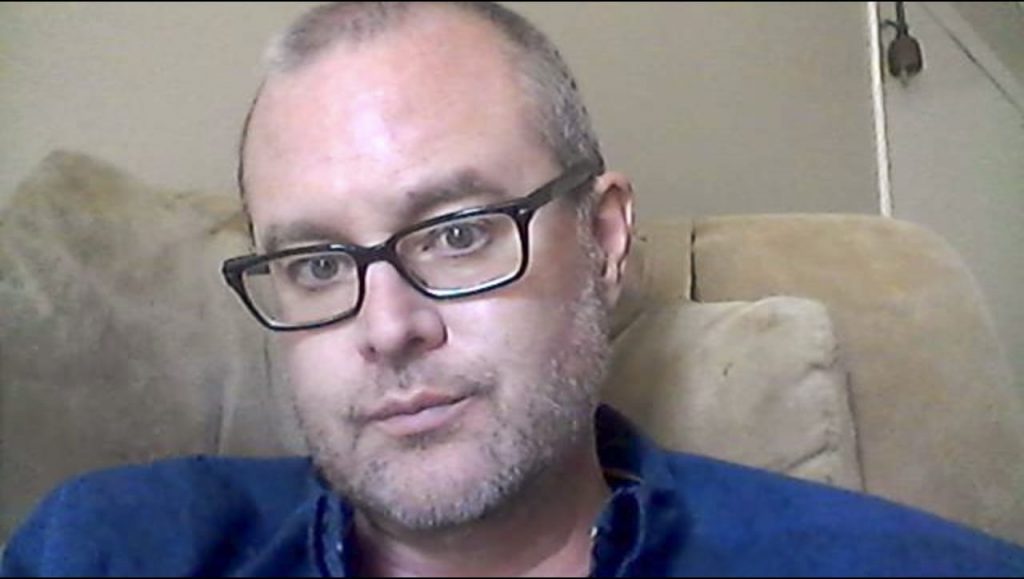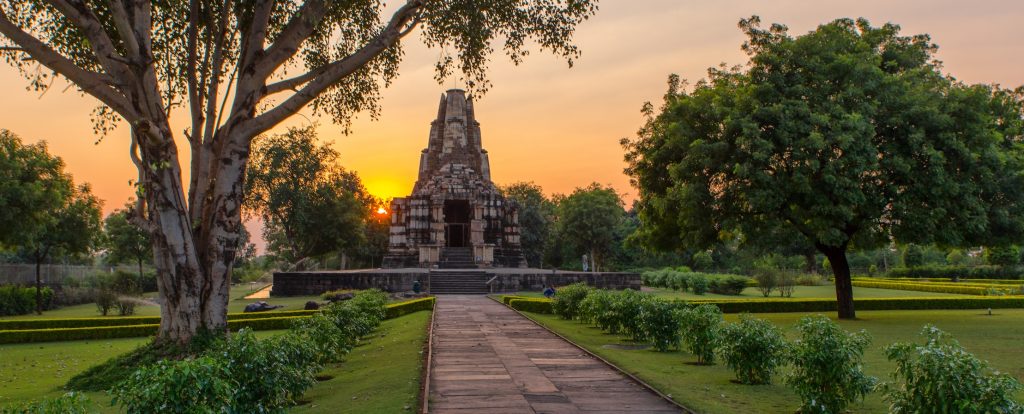I didn’t wake up one morning and decide; it was a conscious, but time-consuming process
By Sean Bradrick

My spiritual experiences began early in life. At age four, I saw and communicated with otherworldly beings, events I now see as mystical. Looking back at these contacts later in life, I comprehended their lesson—that I am not the body. Reality is more than the mental and physical, or the psychological and biological. A spiritual world exists beyond life’s normalities.
A bit later I was indoctrinated into Catholicism. I went through sacraments, studied the Bible, prayed and became a devotee of Christ. That’s when I developed devotion that I would later put towards a Hindu sadhana. My time as a Christian was not negative. I was never the type who preached to or wanted to convert others. I never had the thought that Christianity was the only true path to God. Around age 12, I had brief interest in the occult and European Paganism. I also began yogic and other esoteric studies and practices.
My father was a psychology professor who also taught meditation. He read the Vedas and was a student of Baba Ram Dass. By age 16 I had read the Rig Veda, Tao Te Ching, Bhagavad Gita and Buddha’s teachings. I also had a full yoga practice. Long before I realized I was Hindu, I was practicing its disciplines.
In my early twenties, I was introduced to Haidakhan Babaji. I found an ashram of his devotees just 35 minutes from my home. There, I could practice karma and bhakti yoga while learning more about Hindu dharma and how to practice puja, homa, japa and arati. Soon I was studing Ayurveda and took courses from the American Institute of Vedic Studies founded by Acharya Vamadeva Shastriji (Dr. David Frawley), whom I regard as a modern-day rishi. Two decades later I got to study and practice with Dharma Pravartaka Acharya (Frank Morales), the founder of International Sanatana Dharma Society. Acharyaji is a brilliant man with an immense amount of knowledge.
I initially felt drawn to the Sanatana Dharma by its depth of psychological understanding, along with its various philosophies, its all-inclusive pluralism and multiplicity. I had found none of these things in the monocultural Christian dogma. I became enamored with Vedanta and the idea that there exists a phenomenal universe outside the self, as well as a perceptible universe that could be found within the Self. I loved the idea that God could be found in the here and now through esoteric practices, introspection and austerities.
I became enamored with the idea that you are just a version of who I am, and that what I do to others, I actually do to myself. I admired the concepts of atman (the divine Self), Paramatman (the universal, eternal soul) and Brahman (the spiritual core of the Universe). I liked the idea that these three were considered to be in perpetual union, and I liked how Hinduism focuses on inner knowledge over outer belief.
I prefer to say that I’ve adopted Hinduism rather than converted. I eventually came to realize that Hindu ideology, philosophy and theology was what I had always known to be true. I like to say that I was born Hindu, was raised Christian and remembered later in life that I was actually Hindu. I did not wake up one morning and decide to be Hindu. It was a conscious, but a time-consuming process. I tend to introduce myself as an American Hindu because I do think there is a distinction between Hindus from India and Hindus from America, though we are all united under the greatness of Sanatana Dharma. In a world formed by colonialism, war, religious intolerance, imperialism and materialism, we Hindus should be proud to be simple yet astute, and peaceful yet potent practitioners of the dharma.
Sean Bradrick, author of A Hindu’s Guide to Advocacy and Activism, is an Ayurvedic counselor and writer living in Nebraska, USA.

I’ve had the pleasure to know Sean ji for many years and have admired his articles for even longer. It is good to have an ally like him in the western world. Not many comprehend Hinduism as Sean does. Indian or not.
Thank you Vidyan. You are a good friend. Sorry for the late response. I am just seeing these now.
Sean was a good writer about sanathana dharma,not only writer but real practitioner,very humble person really I admire him and his thoughts.
Thank you. That really means a lot to me.
You are not the body but a requirement to be here on earth.
Indeed. Much love.
Wow I am astound by your indepth understanding of Hinduism n a somewhat ashamed of myself,but it’s never to late to learn thank you Sean Mekka Nandri
Thank you. We are all where we are. Time is cyclic. I have been where you have been, and you have been where I have been. Much love.
Thank you for all the Good you do in USA and World to Promote/Respect/Educate/Enlighten/Keep Safe the Hindu Sanatana Dharma.
I often inform people ‘It is a Hindu way of Life not Hinduism, there is no ism in Hindu.’
First of all don’t use the word Hinduism. It is a ‘Hindu’, way of Life, Mind, Spirit, Soul, Principle, Truth, and Love, deeply rooted in individual demonstration and living in High Standards in Morals, character, Ethics, Values, Spirituality, inner and outer journey in the Divine, Supreme, Higher Consciousness, (the concept of Karma-also called The concept of Golden Rule which originated in India), in a society/culture/country and world. Everyone born in India is a Hindu, it is an Ancient India and Modern India Passport/Documentation/Identity Card. It does not matter whether you call yourself a Hindu, a Muslim, an Indian or Western Christian, a Christian Scientist, a Sikh, a Zoroastrian, a Buddhist, a Jain, whether you follow any organized faith traditions, any organized religions, any organized Western Christian Denominations or follow a Saint/Sage/Holy person/Prophet/Philosopher or Philosophy, or you have your own journey in the Divine which is just personal to yourself. You were or are born in India, you are a Hindu.
Christian Science has nothing to do with a Jew Jesus or a White American women called Mary Baker Eddy and her so-called invention/discovery of christian science in USA. Or with the word God-the word God does not exist, its a Western Christian invention.
Christian Science:
Christian means Divine Consciousness.
Science means the Practice of the Divine/Divinity in the individual and collective consciousness in the society-culture-country-world-universe.
Divine Love’s Blessings on you, Sean Bradrick.
Thank you, Gita. Well said. You are absolutely right. Wonderful observations. Hinduism is not an ism actually, though in this age it appears as such. What it is, is Sanatana Dharma, Vishva Dharma, Adi Dharma, Atma Dharma, Moksha Dharma, Yoga Dharma, etc. Be blessed, Gita.
Ty. Divine Love’s Blessings on you, Gita.